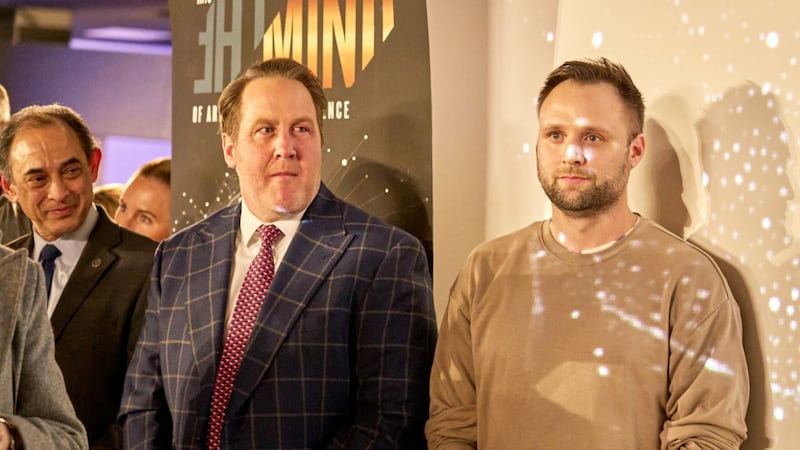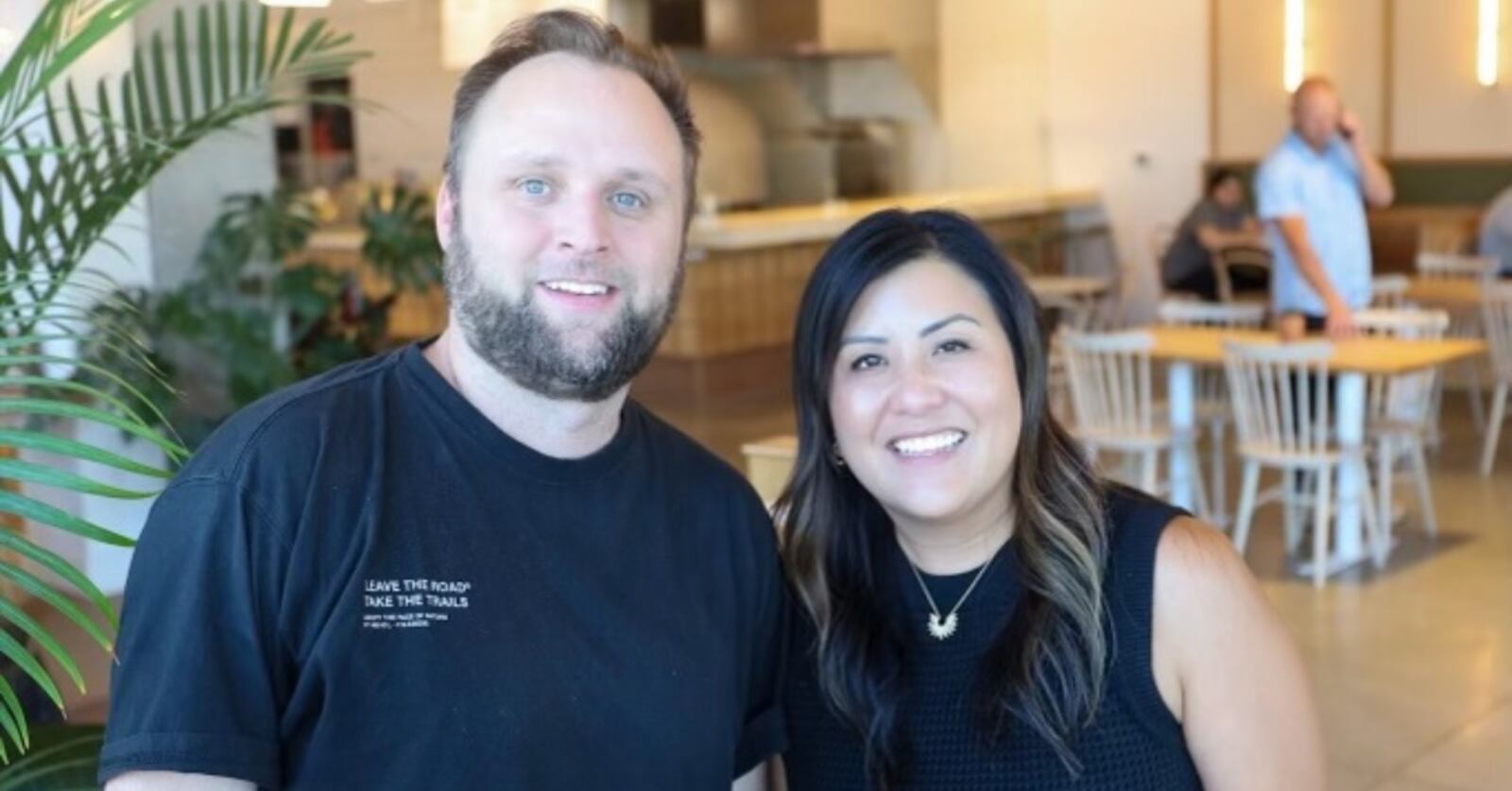On an otherwise uneventful Wednesday at work in 2011, I handed in my two-week notice to my then-boss, Dan Caffee. Later that day, I was fired.
Sitting across from Dan, I was in disbelief at the news and abrupt shift. “Zach, in life, you will come to realize that all you need is just one person to believe in you and then ‘vote’ for you,” he said. He slid over a paper with my name and an offer for a quarter of a million dollars. “This is my vote. I believe in you. Get to work.”
That singular moment changed my life. I quickly hired some brilliant individuals to help me out. Together, we built incredible apps for clients, a handful of viral consumer apps and an iPad app for managing workspaces. The app became Teem.
Teem was growing like wildfire, and I didn’t know how to manage a business. Shaun Ritchie came on board and took the role of CEO. We hustled for venture capital, and finally, Google Ventures made a move to invest, followed by incredible investors and firms joining them. Over the next five years, we hired an amazing team and grew Teem — the little iPad app I wrote one night — into a successful SaaS software company that was purchased just five years later by WeWork in 2018.
I spent a year inside WeWork before they had to divest Teem due to their failed attempt to go public. Rather than continuing my role, I instead chose to take a break where I focused on consulting and investing.
Finding clarity within chaos
Then, once again, on an otherwise uneventful Wednesday in early 2023, I found myself sitting across from Dan Caffee.
I mentioned I was ready to build again, and he told me to go track down Sunny Washington. He believed the two of us could build something amazing. A couple of days later, at an opening celebration for Edison House, we happened to run into each other. She asked if I would be interested in going with her to the Utah State Capitol.If you haven’t been to the Capitol during a legislative session, you should find time to go. It is a quiet chaos of debates, a flurry of side conversations, individuals jockeying their positions and protestors making their causes clear. Underpinning all of the commotion is time-sensitive information. As you wander into other buildings at the Capitol complex, you find individuals glued to screens, trawling through the state legislative website, moving as quickly as possible to copy and paste relevant information into emails, spreadsheets and conversations with various stakeholders.
The complexity of the workflows these folks carry out is staggering. It is a slow, highly manual process and attempts to grok thousands of lines of legislation that are dropping every few minutes. It became immediately clear to me that there was no good process in place for thoroughly and intuitively understanding all that was happening. There was just all of this activity, social interaction and legislation.
I was seeing misinformation everywhere. In an attempt to address their complicated workflows, folks started uploading legislation into ChatGPT. While it might have been a great solution in theory, it caused ChatGPT to hallucinate.
Due to how legislation is marked up, you have the existing code and new code in a single document, including additions and deletions. When previous code gets combined with newly cut legislative language, AI doesn’t know which is which, and it spits out bad information. AI gives incorrect or misleading results all the time. They were trying to get information that seemed like a solution, but AI hadn’t yet been trained to deal with legislative markup.
It became clear we could fix this. I went home, called a couple of engineers I knew and asked if they would hack on something with me that night. We modified that system, went back to the Capitol the next day and shared it with everyone there. They’d never seen anything like it before. People doubted it was real at first. They wanted to know if they could pay for it, and we didn’t know how to react. Maybe?
Word spread fast about what we’d created. As the day went on, more and more people approached us, asking to see the tool we’d made and how they could gain access to it. This was needed in a very real way, and we promised to keep building and developing it. Suddenly, other groups and individuals started saying they’d put money into it to help move it forward, and that sealed it. We poured our development efforts into bringing the solution to fruition.
In February of 2023, Seer launched.
Connecting the dots faster
I was 25 when I was diagnosed with ADHD. Initially, I was ashamed of it.
Years ago, I was at WeWork in a meeting and my coworkers were sharing what their various superpowers were. Someone said ADHD was their gift and that they could connect information at a really high rate, allowing them to see things in a way no one else really could. That resonated with me deeply because I felt similarly.
If anyone with a technical brain had walked into the Capitol the same day I did and seen what was going on, they’d have also seen the same kind of opportunity that Sunny originally saw. I took it a step further. It then became a matter of identifying what I was seeing and connecting it with these other concepts from my tech startup background to build something unique.
As a whole, we’re spoiled in 2024. In 2023, you could do so much with so little and get validated. There was a lot that we now take for granted as builders and tech people, but it’s just so easy to try something new by adding AI to it. When you do that, you can literally do anything. It’s just a matter of pointing it in the right direction.
Our democracy is dictated by information and codified through social interactions. With Seer, we connect all of that data quickly, practically in real-time, as a way of getting these legislators and advocates to talk more. It’s a way to get more movement in action based on data that’s hard to compile. If you’re involved with crypto or real estate, the speed of action and communication makes a difference. It can be the difference between your business surviving or dying and getting your community the support it needs.
Governments and legislatures across the country are inaccessible, and Seer exists as a way of changing that. Increased accessibility is such an important part of why I built the tools I did in the first place. On-ramping into legislation and knowing who to talk to is nearly impossible. We can use tools like AI to lift people into the conversations they have been locked out of.
Think of it as an ability to walk into that conversation with the confidence that you have the right data and understand who the players are. Transparency is a big part of that, but so is taking action. By the time you hear stuff on the news and feel properly riled up to support a cause, in many ways, it’s too late. Emailing your legislator won’t effectively move the needle.
Lots of questions, some answers
The Utah State Legislature website has won multiple awards and accolades for how accessible the data is, but there are no protocols for how that data is accessed or stored. How do we get all this data out of these systems and make it consistent? Where is it? It’s changed all the time because they’re trying to make their site usable for their users, both politicians and citizens.
That’s where a lot of the challenges lie. How do we deal with pulling in all this data? How do we make sense of it? How do we feed it to a large language model to start generating what we need? How do we prevent it from hallucinating and giving misinformation? How do you keep it to the text of the legislation and not whatever it thinks its opinion should be? How do you remove bias?
It took a lot of training for machines to understand what the existing law was. Changes to the law, whether they are additions or deletions, tend to complicate things. The legislature passed a record-setting 591 bills this year. But then you have amendments. How do we deal with amendments? How do we make sure that we’re giving people the right information? It’s a wild sequence of events that’s constantly shifting.
The best way to describe the legislature is that it’s one of the oldest social networks that’s ever existed. Think about how much your Twitter or Facebook feeds are constantly changing based on the amount of information dropping. How do you make sense of all that? How do you feed it into the machines fast enough and make sure you’ve glued it all together correctly? It’s a lot of work. It’s still not done. We keep finding new bits of precious data that are hard to get to.
We’re making considerable progress. If Seer can allow advocacy groups, nonprofits, lobbyists and politicians an extra 20 minutes to hear someone’s story, I think we would have a better country. Understand this is not an “us versus them” scenario. It’s not Seer versus the government or the citizens versus the government. It’s not left versus right or Trump versus Biden. We’re all Americans. We have different strategies and value systems, but we’ve lost so much commonality. The hope is that Seer will help bridge those differences under a common cause.

Curiosity is king
The success I had with Teem resulted from being willing to take risks. Be willing to be curious. Be playful and keep asking questions. The more you ask why, the more you start to unravel. When you go to the edge to see what will happen next, sometimes it fails, but that’s OK. Have the audacity to continue and hear opinions. Opportunity lies in between those curious moments.
I watched so many people get wrecked because they were unwilling to explore or listen. They only saw the world through a singular lens. A lot of dimensions exist (and when you have ADHD, a whole multiverse exists). Discover what they are by experimenting faster. Frankly, that’s America. That’s democracy. That’s our government. Utah itself is the result of people being curious about God and the West.
It’s easy to think everything has already been done. Don’t get trapped in that mindset. It was hard to believe anyone would replace Facebook or Instagram, and then TikTok came along. I didn’t think Google would ever get replaced. Suddenly, people got curious, and better search engines surfaced. We live in a time when we can have an idea, put it online and get immediate feedback. You can build even if you’ve never built before. You can have AI build it for you and have a functioning business in a matter of hours.
It’s an incredible time to move. We have to break so many understandings that we’ve been taught. So much of our mental models come from World War II and factories and inboxes. Authority and public education were just teaching you to be a good follower and not a leader.
If it is not obvious that we have reached a point in humanity where all of that has to be broken, consider this your warning.
“Any sufficiently advanced technology is indistinguishable from magic.” (Arthur C. Clark)

